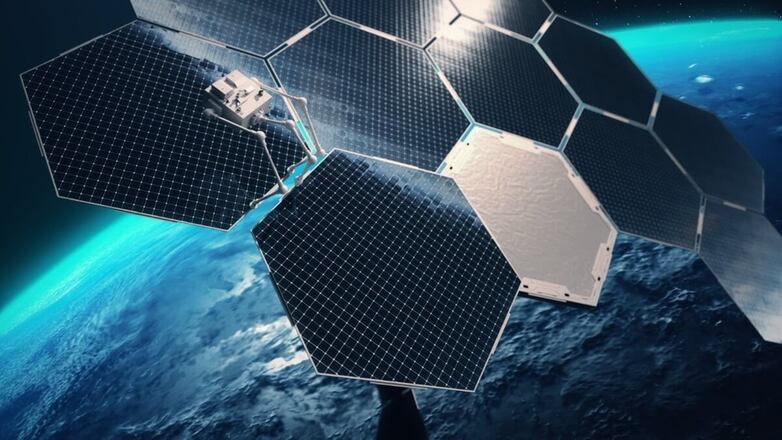The ASCEND (Advanced Space Cloud for European Net Zero Emission and Data Sovereignty) feasibility study presents encouraging results, according to Thales Alenia Space, a joint venture between Thales (67%) and Leonardo (33%). Under the EU Green Deal, this project seeks to investigate the viability of space-based data centers to meet the goal of having net-zero carbon emissions by 2050.
The project was initiated in 2023 and is supported by the European Commission through the Horizon Europe program.
The ASCEND study was designed to assess the environmental impacts of space-based versus Earth-based data centers, as well as to validate the technological feasibility of developing, deploying, and operating such centers in orbit. Coordinated by Thales Alenia Space, the study involved a consortium of European partners with expertise spanning environmental aspects (Carbone 4, VITO), cloud computing (Orange Business, CloudFerro, Hewlett Packard Enterprise), launch systems (ArianeGroup), and orbital systems (German space agency DLR, Airbus Defence & Space, and Thales Alenia Space).
A critical aim of the ASCEND study was to determine if space-based data centers could significantly reduce CO2 emissions associated with digital data processing and storage. The results indicate that achieving substantial reductions would require the development of a new type of launcher with a lifecycle carbon footprint ten times lower than current models. Additionally, space data centers would not need water for cooling, presenting a significant advantage amid growing concerns about water scarcity.
The study suggests that reducing the energy and environmental impacts of data centers could drive major investments within the framework of the EU Green Deal. This investment could potentially justify the development of a high-capacity, eco-designed, and reusable launcher. Thanks to contributions from ArianeGroup and insights from the European Space Agency’s (ESA) PROTEIN feasibility study, ASCEND confirmed the feasibility of a launcher capable of multiple launches with a minimized carbon footprint.
The proposed modular space infrastructures would be assembled in orbit using robotic technologies developed under the European Commission’s EROSS IOD (European Robotic Orbital Support Services In Orbit Demonstrator) program, led by Thales Alenia Space, with the first mission scheduled for 2026. This approach aims to re-establish Europe’s leadership in space transportation, logistics, and the assembly of large orbital infrastructures.
Addressing Europe’s Digital Sovereignty
Beyond environmental benefits, the ASCEND project also addresses Europe’s digital sovereignty. By deploying space-based data centers, Europe could reduce its digital carbon footprint while ensuring greater data security for both citizens and businesses. The market for data centers is projected to reach 23 gigawatts of capacity by 2030, and ASCEND aims to contribute one gigawatt by 2050. The study’s findings confirm the economic viability of the project, forecasting a return on investment of several billion euros by 2050.
“The results of the ASCEND study confirm that deploying data centers in space could transform the European digital landscape, offering a more eco-friendly and sovereign solution for hosting and processing data,” said Christophe Valorge, Chief Technical Officer (CTO) at Thales Alenia Space. “We’re proud to be contributing to an initiative supporting Europe’s net-zero objectives and strengthening its technological sovereignty.”
With these promising results, Thales Alenia Space and its partners plan to continue the ASCEND feasibility study to further consolidate and optimize their findings. Achieving the project’s ambitious goals would require a paradigm shift within the space sector, leveraging technologies that are within Europe’s reach.
Thales Alenia Space, drawing on over 40 years of experience, provides “cost-effective” solutions across telecommunications, navigation, Earth observation, environmental management, exploration, science, and orbital infrastructures. With consolidated revenues of approximately 2.2 billion euros in 2023 and around 8,600 employees across 17 sites in 10 countries, Thales Alenia Space continues to be a key player in designing satellite-based systems that offer global connectivity, positioning, and environmental monitoring. As a joint venture with Telespazio, Thales Alenia Space says it is dedicated to building a sustainable future through innovative space solutions.









